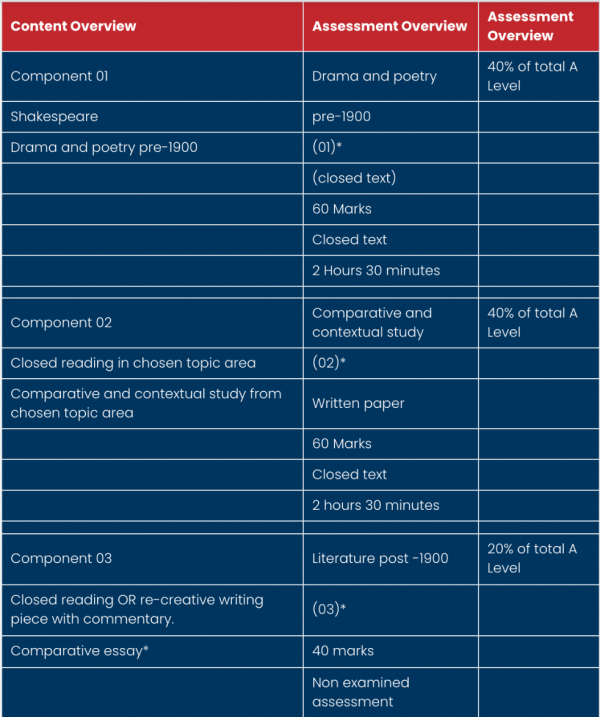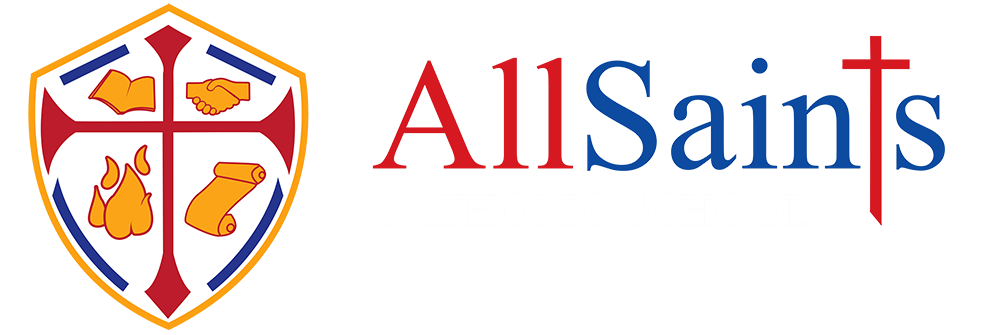English
Key skills (subject specific) that are developed:
English at All Saints is taught with relish where lessons are designed and delivered by specialists and enthusiasts for the subject who dedicate time and energy in developing excellent and engaging lessons where all students are able to enjoy and achieve. Lessons are catered to allow maximum opportunity for discussion and the development of individual response. As a core subject, English plays a central role in helping students develop into confident writers, analytical readers and fluent speakers. Our programme of study provides ample opportunities for students to study a range of literary and non-fiction texts belonging to the 19th, 20th and 21st century. Our classes are designed to embed information technology and moving image which act as great stimulus to the learning experience of students.
We, in the English Department take great pride in organising a number of interclass competitions. From poetry competitions, Spelling Bee and debates just to name a few, student participation and feedback indicate how these opportunities have contributed to making their learning experience at All Saints a truly rewarding one. Students carry out a number of projects which provides a platform for students to demonstrate strong research and planning skills, working in a team as well as developing strong communication skills. The study of English at All Saints is dynamic and engaging adding value to the learning experience of our students.
In summary students are taught these specific skills in the subject:
-
Read and understand texts from a range of genres and time periods
-
Make links and connections between texts and social, historical and literary contexts
-
Draw comparisons and contrasts between texts
-
Explore and analyse impact of writer’s language choices using key terminology
-
Explore and analyse the structure of texts using key terminology
-
Select and embed quotations
-
Memorise quotations
-
Write analytical essays in an appropriately academic register
-
Summarise texts
-
Articulate own opinions and those of others with fluency both verbally and in writing
-
Use grammar and punctuation with accuracy
-
Use sophisticated vocabulary deliberately and with precision
-
Identify and apply key techniques used in creative and descriptive writing
-
Identify and apply key techniques used in argumentative and persuasive writing
KS3
Summary
At Key Stage 3 students follow a rich and varied curriculum designed to engage and challenge them as learners. Students are taught to acquire high standards of communication within the spoken and written word. Students read from a wide range of genres and are encouraged to respond critically and creatively. The range of works studied covers pre-1914 and contemporary literature including prose, poetry and drama. Students also study seminal world literature and two Shakespeare plays. Students are also encouraged to read independently to develop and appreciation and love of reading.
Students are taught to write for a variety of purposes and in a wide range of forms including stories, poetry and other non-narrative texts such as letters and speeches. They are encouraged to draft and edit their work refining vocabulary choice and amending grammar to improve the overall effectiveness of a given piece. Students are taught to give presentations and speeches in a variety of contexts and are encouraged to participate in classroom debates and discussions.
All Saints English Department offers a range of enrichment activities and experiences such as Poetry Slam and Spelling Bee to name a few.
Useful websites:
www.bbc.co.uk/schools/bitesize
https://www.bl.uk/catalogues-and-collections/digital-collections#
https://englishapp.pixl.org.uk/#top
KS4
Summary
EXAM BOARD: AQA English Language 8700. – 2 exams
AQA English Literature 8702 – 2 exams
At All Saints, students prepare for the AQA English Language and Literature course where they acquire a double award in the subject at the end of Y11. Both courses will have terminal exams in Year 11 but mock exams and regular internal assessments are carried out so that students gain sufficient practice to write under exam conditions.
Revision and intervention classes run weekly and these sessions are designed to consolidate students learning where there are gaps to ensure that our students are best prepared for these exams. We advise that students should take revision seriously with a clear pathway designed into achieving their full potential in the subject. Since 20% of the English Language marks is awarded for the quality of the students spelling, grammar and punctuation, we strongly suggest that regular independent work on SPAG to improve literacy and quality of expression is carried out.
Additional Reading:
Revision guides compiled in school will be provided
CGP revision guides
York Notes
Academic writing on the studied texts
Useful websites:
www.revisioncentre.co.uk/gcse/english
www.geoffbarton.co.uk/student-resources.php
KS5
KS5 Summary
(EXAM BOARDS, NO. OF EXAMS etc)
Exam board: OCR
Linear course: A Level
No. of exams: 2
This course is designed to develop a continued interest in English Literature. Students will be encouraged to read critically and independently, across centuries, genre and gender. Candidates respond to these texts in analytical and creative ways and are assessed through coursework (20%) and examination (80%).
A minimum of eight texts covering prose, poetry and drama. The course encourages a student’s development as a confident, independent and reflective reader of a range of texts, learning to express responses effectively through speech and writing.
Exam: 80% Assessment percentage Coursework: 20%

Additional Reading:
Further reading packs with a range of further reading materials and websites are provided at the very start of the course which encourage students to develop their independent learning skills.
Useful websites:

